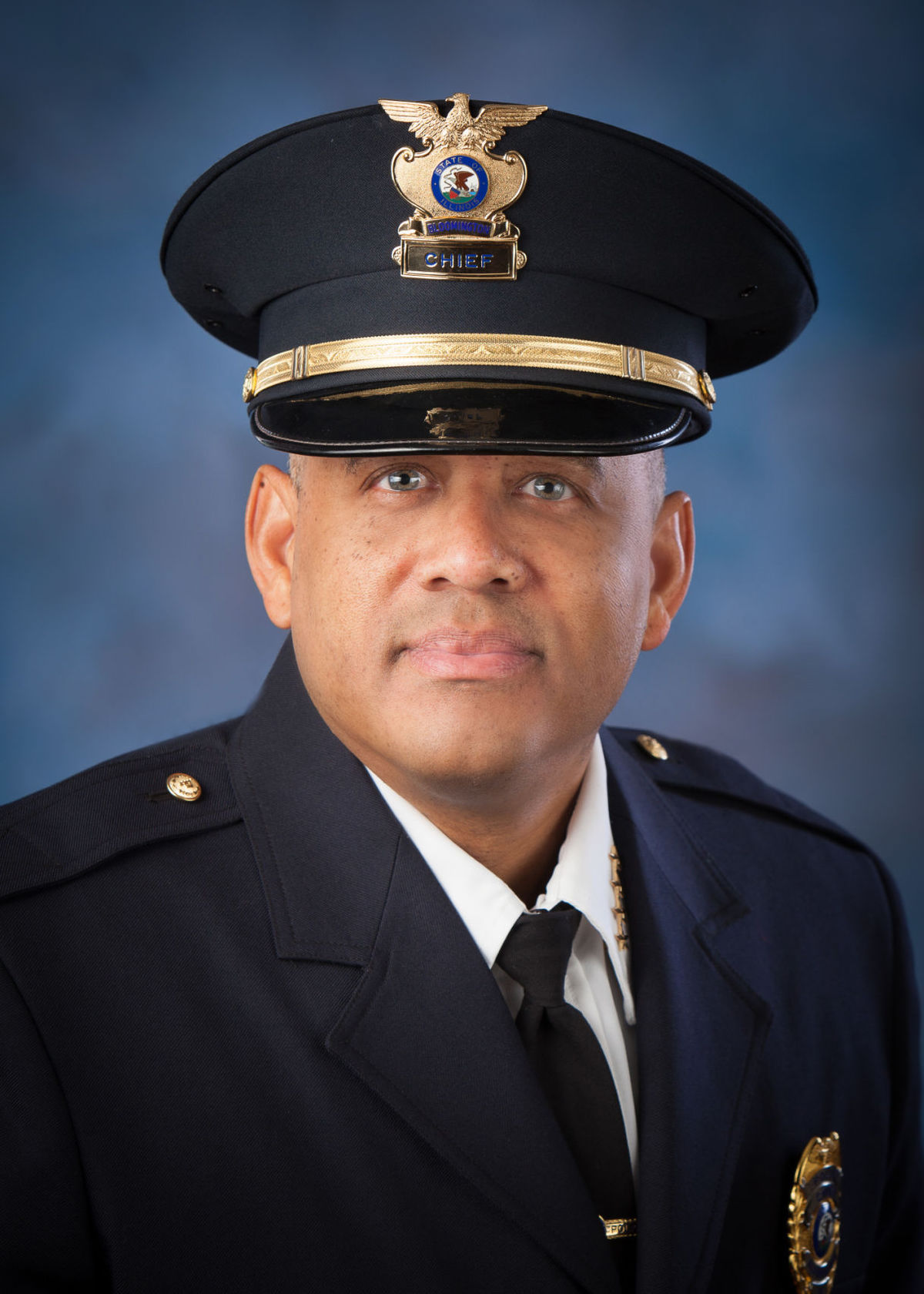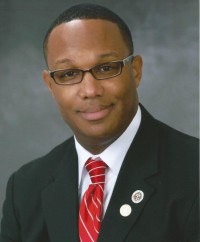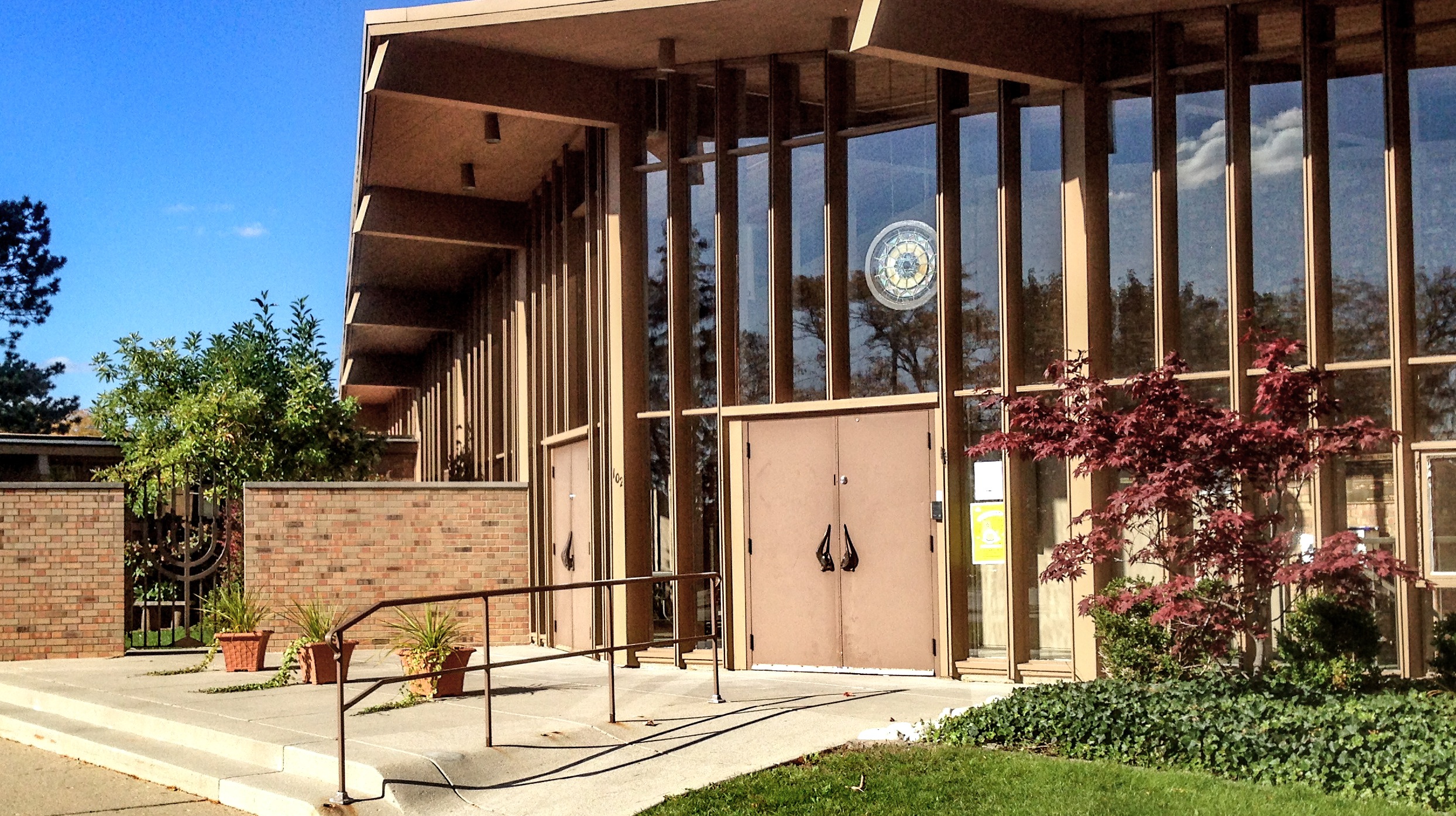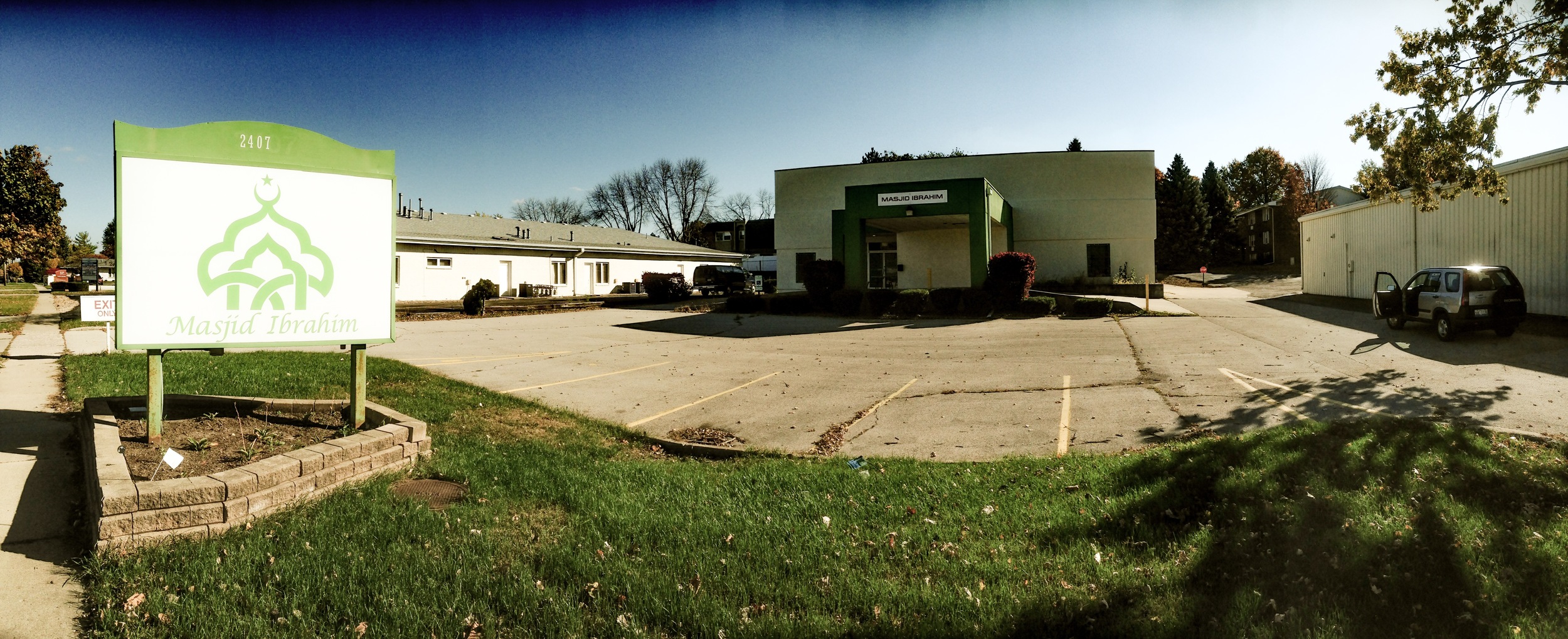"Homeless in Bloomington Part 1"
WGLT
The recent case of vandalism to a bench frequented by homeless people in downtown Bloomington has reopened a community conversation about gaps in services for the chronically homeless.
Some downtown business owners have stepped up their complaints, while some homeless people say they are unfairly singled out by police. Bloomington police, business owners, and advocates for the homeless (met this week) to discuss what some see as a simmering problem.
Some have taken to calling the incident “Benchgate.”
A person in a hooded jacket was caught on surveillance video in downtown Bloomington smearing a greasy black substance from a bucket on a bench frequented by homeless people. He person apparently knew about the surveillance cameras near Main and Mulberry Streets. He -- or she –- took care to shield the face from view, and struck at 6:10 a.m. on a Saturday -- when few pedestrians are around.
“I think this speaks to the level of unwelcome that people who are homeless feel in our town," said the Rev. Kelley Becker, assistant pastor at First Christian Church in downtown Bloomington, who has a ministry to the homeless (and serves as NIOTBN Faith and Outreach chairman).
Bloomington Mayor Tari Renner is concerned police have been unable to find who was responsible. He says the issue is not so much damage to a city bench as it is the kind of signal the incident sends about attitudes toward the homeless.
“This whole situation was very disturbing. As a mayor, a citizen, as a human being, it’s sad to me," Renner said.
The bench incident laid bare a side of the Bloomington community often kept hidden. It revealed a gap in services for the most difficult of homeless cases. It also underscored the widening concern among some business owners about the homeless population, as well as a growing frustration among police – and the street people themselves -- who say they feel targeted.
Todd Ledbetter is a homeless man who could often be found on that bench. His clothing was ruined when sat on the grease.
“I didn’t really have any other clothes so I had to wear my undergarments, my Nike-wear under my Levis," Ledbetter told WGLT. "I had some old shirts and stuff. Some good Samaritan came by and asked me if I needed a pair of pants. They brought me a pair of Levis, and fortunately they fit.”
“I think it’s discrimination against Todd just because of who he is,” said Mike Waters, who lives in an apartment building downtown and says he has known Ledbetter for years. Waters says he placed a warning sign on the bench after not only Ledbetter, but a female shopper unwittingly sat in the greasy substance spread over it.
“They go after Todd. I don’t see them picking on other people in the public," Waters added. "Other people have tried to chase him out of here. They won’t let him in the businesses because he’s been here so long.”
Ledbetter represents the kind of homeless person most difficult to get back on track. He grew up in Carlock, IL and worked in an automobile repair shop. Ledbetter said he descended into alcoholism after two divorces and losing custody of his children.
He served time for armed robbery in Champaign and has been arrested in McLean County three times on misdemeanor charges including trespassing at a Jimmy Johns and stealing a two dollar and fifty cent can of wine from a Thornton’s gas station.
“When I first got out of prison, I went from down from 30 beers to 20 beers to 10 beers because I was trying to get out from under what was hindering me from being that one hundred percent Todd that I used to be,” Ledbetter said.
By his own admission, Ledbetter still drinks--and doesn’t intend to stop. For that reason, he’s unable to stay at the city’s two main homeless shelters. He’s also unwelcome at most downtown businesses, even to use the bathroom.
“I’ve had several cops say to me, people are just sick of seeing you and you need to leave," he said.
Lori Kimbrough is outreach director of PATH, an agency that tries to match the homeless with services. She said complaints from business owners have nearly doubled in recent months, even though most of the homeless who congregate downtown are not violating any laws.
“Generally the folks are just loitering, they are out and about. Sometimes they ask people for money, panhandling, but generally they are just out and about hanging out," Kimbrough said.
Becker of First Christian Church said options for staying elsewhere have become even more limited. Last year, the city chased the homeless from a so-called “Tent City” where they used to congregate west of downtown because they were staying on private property.
“There are still a lot of people living near the downtown area, sleeping in parking garages or underneath bridges and maybe sleeping in a shelter in evening and then having no place to go during the day, not even to go to the restroom or even get a drink of water. And I think we need to think seriously about what our reaction to this is going to be,”Becker said.
Bryce Pierson is an assistant McLean County public defender who has handled dozens of cases involving the homeless. “They find themselves in a situation where they are bound to downtown because the service providers are downtown," Pierson said.
"So you have individuals who don’t have any means for transportation, they don’t have cars, they don’t have means for bus tokens so they locate as close to the providers and court as they can and that tends to be the downtown area.”
Private agencies offer several services for the homeless. The Salvation Army on Washington Street operates the Safe Harbor shelter which offers overnight beds and meals. The Salvation Army also oversees a food bank and provides a day lounge for those not currently staying at the shelter.
The Mission at Home Sweet Home Ministries on Oakland Street provides temporary shelter for adults and families with children.
Tom Fulop of Safe Harbor says both shelters must restrict who can stay there.
“Some folks don’t want to stay here because we have too many rules. One of the rules is you can’t drink in the shelter. We have put people out because they bring alcohol or drugs onto the property and that is not acceptable, that is not appropriate," Fulop said.
The Mission at Home Sweet Home Ministries doesn't allow people to use the sleeping areas during the day, although there are men’s and women’s day lounges. Executive director Mary Ann Pullin said because children stay there, the shelter won’t take in anyone recently convicted of a violent crime.
“We’re not able to serve everyone. People need to be drug and alcohol free. That’s to try and insure a safe environment for everyone, including the children," Pullin said.
Advocates said the hardest cases are homeless people with mental illness. Of the people who stayed at Safe Harbor in the past fiscal year, 21 percent had alcohol problems and an equal percentage had physical disabilities. But by far, the largest group -- 43 percent -- suffered from mental illness.
The city and county have been working for years on better services for the mentally ill. The county established a mental health court a few years ago. Just last week, it announced it will participate in a new federal program to divert mentally ill residents from the criminal justice system.
Bloomington's Mayor Renner said the city needs to find additional “humane ways” of moving forward.
“We did earmark a quarter penny of our sales tax for mental health issues. We do not want our jail to be the number one mental health institution, and currently it is,” Renner said.
For the mentally ill homeless, life can be a revolving door of arrests. Take the case of one 57- year -old Bloomington man. According to court records, police arrested him for minor misdemeanors seven times in a three-month period. His offenses included failing to leave a Quick Stop, a Kroger supermarket, and a La-Z-Boy furniture store when asked.
PATH’s Lori Kimbrough said the man is well-known to homeless advocates.
“For him, he feels everyone is out to get him and that no one understands his concerns and issues which is totally understandable when he’s been barred from here, here and here," Kimbrough said.
Police noted on several of the arrest reports that this individual suffers from mental illness. But with nowhere else to take him, the man ended up most of the time in jail.
“This isn’t a police problem, it’ a bigger problem than us," said Bloomington Police Chief Brendan Heffner.
Heffner said panhandling, for instance, is not a crime in Bloomington, but if business owners call the police about a homeless person, officers have to respond.
“People pay the city for the right to have a business and if they think someone is in there disrupting their business by coming in and disturbing customers or stealing, they have a right to have a police response and that is our duty," Heffner said.
McLean County Sheriff Jon Sandage said detention might be a good thing some who have drug abuse problems or suffer from alcoholism, like Todd Ledbetter, the man who used to sit on the defaced bench.
“We can get him some of the help he needs while he's here and that is help that he might not seek on his own," Sandage said.
But there are several drawbacks. Pierson, the assistant public defender, said homeless people repeatedly arrested for minor misdemeanors usually get increasingly higher bonds with each subsequent offense. That makes it harder for them to get out of jail.
Pierson said many of his homeless clients then feel pressure to plead guilty just to get released for time served.
“They don’t look long-term. So short-term it’s a good option to enter the conviction and be released. They don’t look at the collateral consequences that go along with having the conviction on their record," Pierson said.
PATH’s Kimbrough says criminal convictions make it more difficult for homeless people who are seeking to straighten out their lives to obtain employment or housing.
“You serve your time and come out, and if you didn’t have a place to live before you went in, you certainly don’t have one when you come out. Now you’ve added to your record jail time, and it’s harder to find that permanent housing option," Kimbrough said.
Each of the McLean County shelters offers only short-term housing. For instance, Safe Harbor allows residents to remain for eight weeks, although some can stay longer under special circumstances.
Pullin of Home Sweet Home Ministries says there is an even larger problem: a general lack of affordable housing in McLean County.
“Often times people regard the homeless as people who are unmotivated, lazy, and that's simply not true. Most of the adults who stay here are employed and many are employed at two jobs or more," Pullin said.
"Here in Bloomington-Normal, if you wanted to afford a basic two bedroom apartment, you'd have to work two fulltime jobs at the minimum wage if order to afford that," Pullin added. "If you have children and child care expenses on top of that, it's impossible."
One approach other cities have tried is called the “Tiny House” project. As the name suggests, these are small homes built to fit several on a single lot. A consortium of local churches recently renovated a trailer into a Tiny House.
That house currently sits on a parking lot in Heyworth. That’s because Bloomington officials need to figure out where the home can go under the city’s current zoning rules, and whether it can be hooked up to city water and sewer services.
Pullin of Home Sweet Home says affordable housing must also be coupled with supportive services.
“To insure they are taking their medications as prescribed and will be balanced and won’t be out of control," Pullin said. "That is the biggest issue, essentially people with mental illness need support, not just a place to live, but they need ongoing support to make sure they have their needs met."
Pullin said she believes most people who find themselves homeless can be helped, but there will always be a small number who refuse services.
Todd Ledbetter, the man whose favorite bench was defaced, still frequents the same downtown corner even though the city has not replaced the bench. Now, he sits or lays down on the street, and at night sleeps in alleys or under bridges.
Passersby who know him as a familiar presence often greet him by name and stop to check on his condition.
“People come here and say, ‘Hey Todd, how you doing?’ People who got jobs at a pizza place bring me pizza at midnight to eat when I’ve had nothing to eat all day.”
Ledbetter remains there, with the hope that perhaps one day he can pull his life together, and that someone maybe will offer him day work, so he can scrape together the money to sleep some nights in one of the city’s discount motels.


































